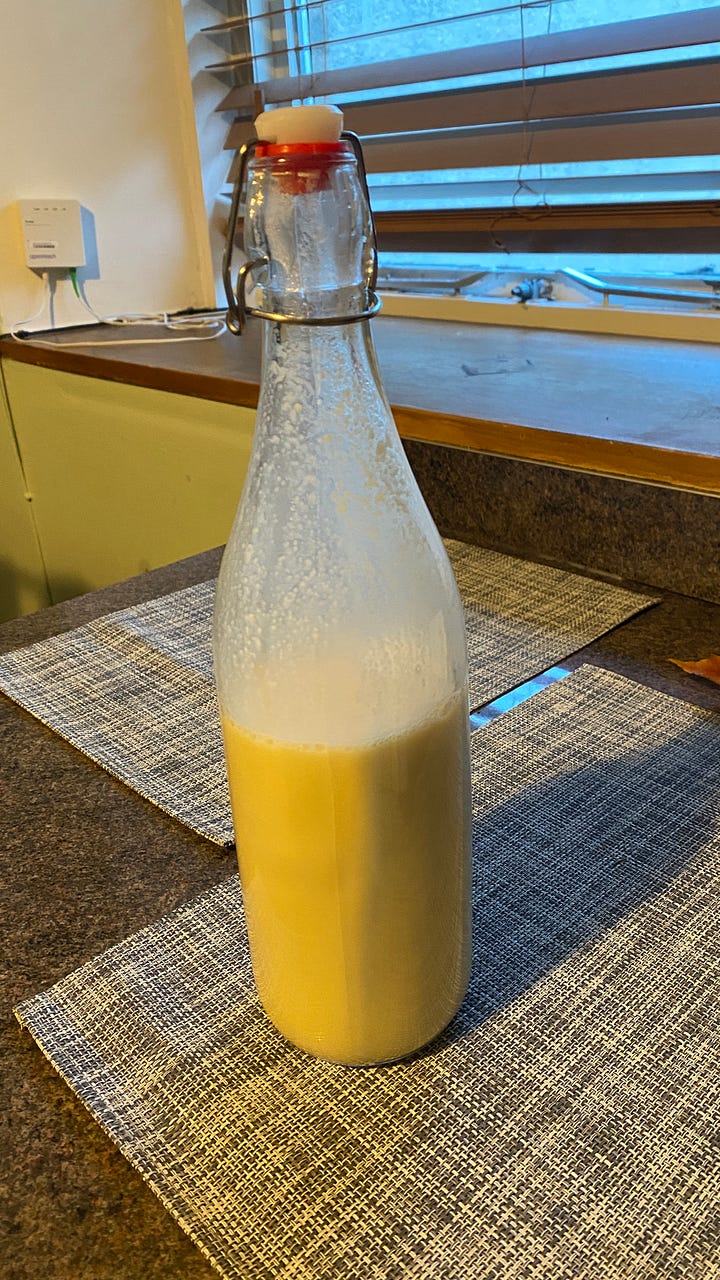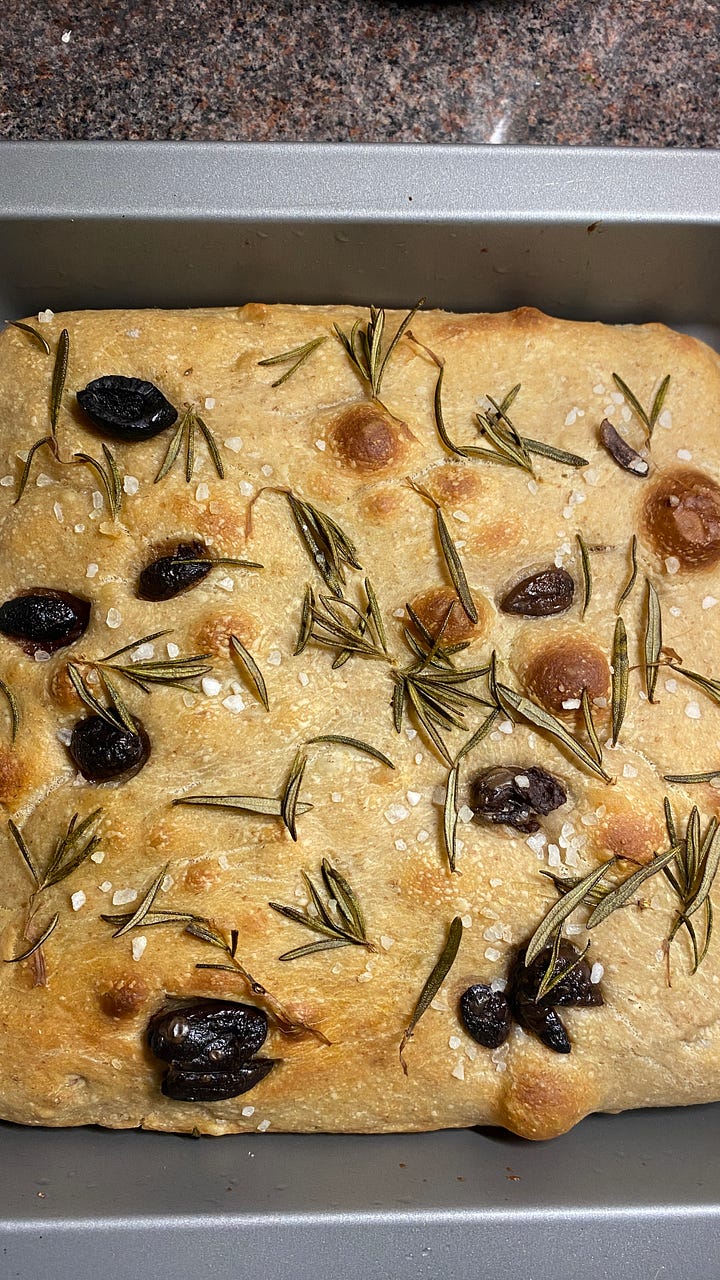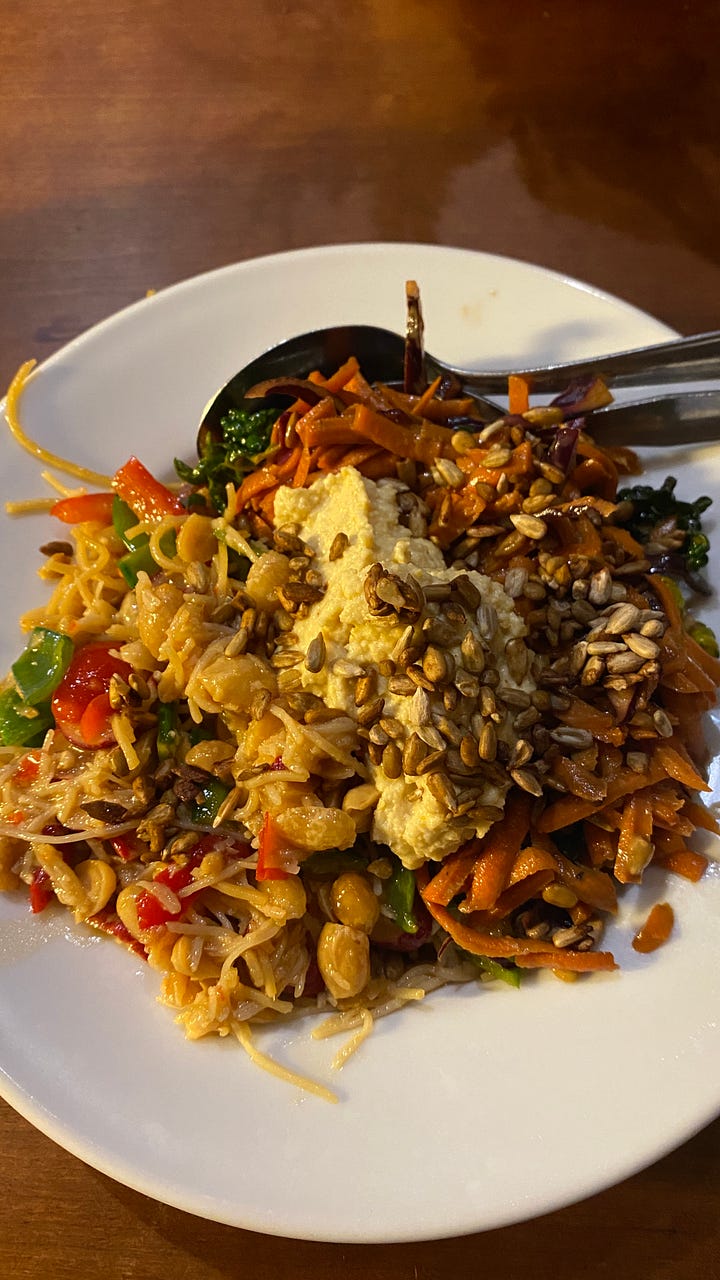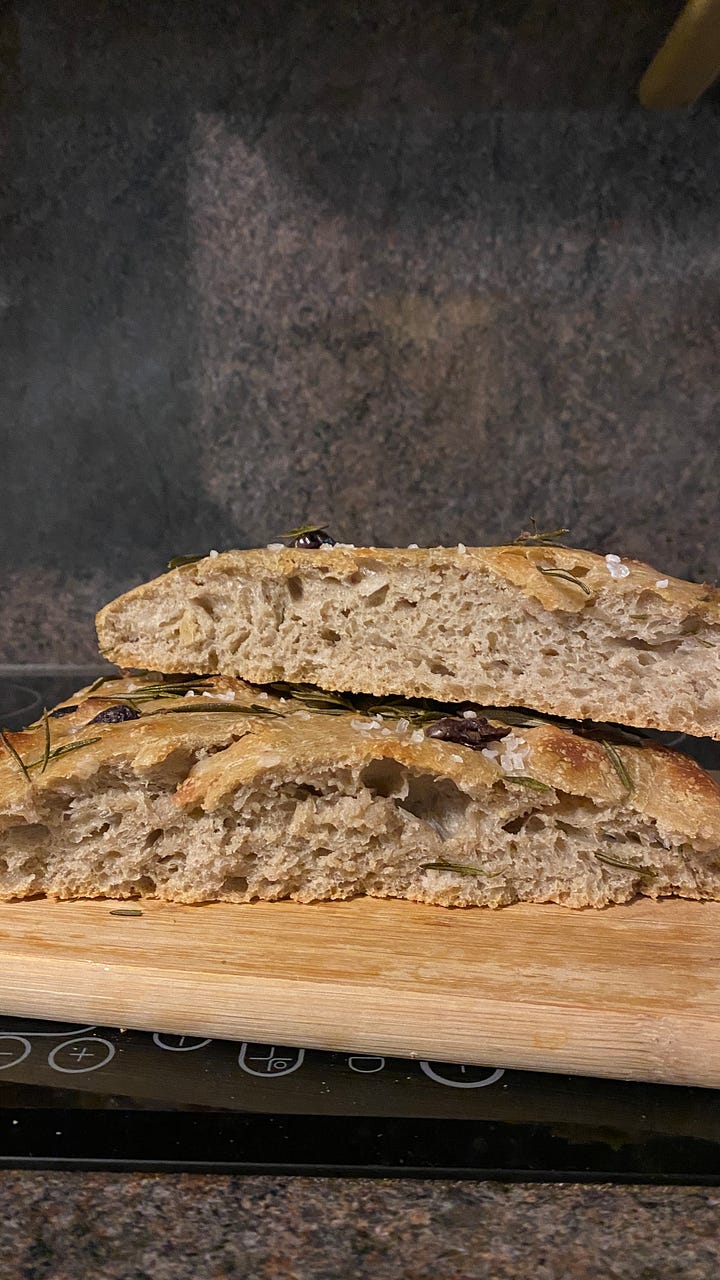What does balance even mean?
This essay started off about balance, but bam, to the sudden unpacking of body image issues and an eating disorder—end-of-year word vomit
Modern life: thrives on the sedentary lifestyle of work that sends people to metabolic disease.
Also modern life: here’s a step tracker.
My Relationship with Food
In regards to balance, I’m not the best person to share my story.
I’m an anxious person, and scrupulosity is my thing.
Let’s zoom in to the topic I enjoy writing on this platform: health and wellness.
Balance is a delicate dance I’ve yet to master.
I have too much food noise in my mind after a history of food scarcity: various restrictive behaviours. I started having this when I lived alone during the pandemic, and my life was never back to the old days.
I disliked the overweight body I had before this pandemic. I saw my old pictures with vitriol.
Rather than feeling thankful for being able to take my mum for holidays in Bali and Penang, my eyes zeroed in on how chubby my cheeks were or that my legs were too big for my liking.
Fuelled by my animosity towards my own body and the fact that I was left alone to take care of the house I didn’t want to stay in to begin with (long story for another day), plus with too much time at hand to prepare my own food during the lockdown, I became the journey to the restrictive mindset of eating.
It wasn’t that I didn’t see results. I consulted with a dietitian, a specialist doctor at that. I reached my target goal. But it was after months of being a pescatarian. And probably exacerbated by Covid, I started seeing symptoms. The most shocking at that time was the chest pain.
My dad having to have his stent surgery due to a heart attack was already a major reason for me to start cutting down food groups (to not get cardiovascular issues later on).
But after months of eliminating red meat and poultry only to have chest pain was a low blow.
I became single-focused, overfitting at meeting my target weight and metrics. I tracked my blood glucose and cholesterol levels. The latter frustrated me as my lipid profile was less than ideal.
And then I started the ketogenic diet only last year, only to lose my period soon after. From November 2023 to December 2024, I only had 3.5 periods, 3 of which were when I was back in my parents’ place in my hometown. Don’t ask me why my hormones refuse to menstruate overseas.
I started reintroducing animal products back in April 2024, coinciding with the time I was back home and my parents were horrified to look at the state of my fingers and feet: bloody and bruised from all the stages of chilblains.
My relationship with food is tumultuous.
So when people keep talking about balance and mindfulness in eating, I read their words like reading another language I’ve never known.
When people said to enjoy different foods in moderation (a.k.a balance), I watched their videos like they were growing horns on their heads.
It didn’t help that people you care about the most were not that sensitive about your relationship with food.
My father was the least sensitive person I knew, compounded by the fact that he had known me since birth. He hasn’t fully grasped autoimmunity and found eating disorders incomprehensible, believing people could simply eat what they wanted and stop when they felt full.
I love him deeply, so I took the matter upon myself and continued educating him patiently about my situation.
But it seemed that I inherited the disordered thought patterns from him, seeing proof that I won’t mention here.
People with eating disorders have a distorted perception of their own eating habits while commenting on others’ lightly.
Perhaps, it’s their subconscious pattern that puts eating out of proportion so that they always have something to say about someone else’s eating habits. About the matters that disturb them, people tend to respond in one of two genuine reactions: by commenting about similar behaviours in others, or by remaining silent.
Whenever I had a video call with Dad, he commented something about me always eating during the call.
It was an unassuming comment and I tried to not take it to heart. I always ate during the call because it was always about 2-4 pm in my time and evening in theirs so I either had my lunch or a wee snack. Or, back then when I was still working Indonesian hours from Coatbridge, it was an early supper if I had to sleep early.
After that harmless comment of almost always seeing me eating during the call, I rarely ate when I called again. I was hurt.
I also had an issue with a friend commenting on what I eat and making a conjecture to my body. As in: you eat so much bread and yet you’re still slim.
That was during a trip to Germany and they had a mouthwatering selection of bread (my German friends agree that there are so many variations of bread in Germany). Well,
I ate a lot of bread because I didn’t eat animal proteins back then, I needed my calories
I was still addicted to carbs
I was slim because not have enough protein to build muscles and the glucose was easily consumed from all the physical activities
My dad made a similar comment when I was at home, having a large heaping portion of salad. He remarked that for a single sitting, it was such a large portion.
I was starving and I couldn’t eat little because I would still have that food noise.
I just wanted to eat, why did people keep policing what I ate?
Even when I ate whole foods (80% of the time I ate whole foods, and even nowadays when I want to eat bread, I make it myself as I keep a kitchen pet, a rye starter), I was still being picked on?
Unbelievable.
My therapist told me this when I brought up this uneasiness after hearing about my dad’s other comment on my career choice months ago: had it not been your dad who said that would you still have felt the pain?
What we say to others, especially when we’re a special person to them, matters more than what we think when we say it.




(homemade soy milk, homemade focaccia (from above and sliced view), salad when eating out)
Words Do Have Power
This is why words do have power and we must be cautious in speaking and writing. It has a far greater impact than what we assume.
As for Mum, she’s subtly shown she understood my struggle with orthorexia. When she noticed I looked uneasy to digest so much carb (although the “so much” part here was arguably just my mind playing tricks), she said not to force myself and just have 1-2 tbsp of the white rice on the plate, which made sense to transition to more carbs.
Back to the balance.
Given it’s pretty clear I haven’t mastered the balancing act, I kept tumbling into different scenarios of being pushed to the extremes when following an instruction.
Animal protein is inflammatory? Went vegan.
Animal protein is necessary to return my period? Ate steak.
But too much can raise your triglyceride (!), real experience. So what do I do now?
Okay, I went back to pescatarian then.
Walking is the best exercise and it’s gentle to your knees (no pump movements).
And then I completely neglected the muscle-building, weight training exercises.
Muscle is the absolute sink for your calories, so must build muscles to stay lean and healthy.
stressed out
Visceral fat increased to 3.0 after days of increasing my calories.
stressed out again
A Never-ending Search for Optimisation
All my life since 2019 has been revolving around my health issues and optimising certain metrics.
It’s tiring, and my impressionable HSP mind means I can get easily swayed from one notion to another depending on the type of content I consume. If I’ve been on “the UPFs are the root of all evils” bandwagon, I became restrictive. The next day, because of all the mental hunger, I honoured the craving, and so on.
I don’t know which one to resolve first: my orthorexia, my autoimmunity, or loss of period.
People say eating disorder causes a scarcity mindset in other areas of life. Thankfully, I can safely say it’s not the case with me. Probably because I’m on the road to recovery and I’m aware of how debilitating this scarcity mindset is.
But I caught myself almost wolfing down an entire bar of chocolate after months and months of restriction.
How am I supposed to understand balance if modern life itself plucks everyone out of their human nature?
We work desk jobs, disconnecting us from nature and walking, or nature walking altogether.
We trade our health with convenience, with UPFs at every corner.
I wanted to understand this from a balanced point of view, such as modern life gives us modern diseases, but without this journey towards advanced medicines, we would never have had life-improving and preserving tools—medicines, different forms of therapy, vaccines, neuroscience to understand our behaviours, etc.
But another camp of thought in me sneers at the stark contrast I present at the beginning of this post:
We sit too much, so it’s a market for a smartwatch to measure our steps.
We’re busy, so supplement companies sell stuff in a bottle that we can drink on the go.
We want to wind down and relax after a stressful day, so there’s a plethora of streaming services to lull us in.
Final Words
It’s still my homework and I don’t want to pretend I’m all zen because inwardly, I’m still figuring out what balance is, or how much is a balance on a certain thing. I know it doesn’t sound right.
I can be quite critical, but I’m also that girl who hoovered up half a bar of Tony Chocolonely dark chocolate or demolished an entire container of beef chilli—probably about 100 g of it.
Truth is, this post is just another brain dump before the Hogmanay, probably. The topics you have the most baggage in are the most difficult to write, aye?
Before you close the tab . . .
The Gentle Roadmap is a publication centred on my reflection on a holistic healing journey. As a practising Catholic, the articles sometimes portray my layperson experience with the faith. If you like my writing and want to be notified of new posts, please subscribe (it’s always free). You’re always welcome here regardless.
Until next time,


